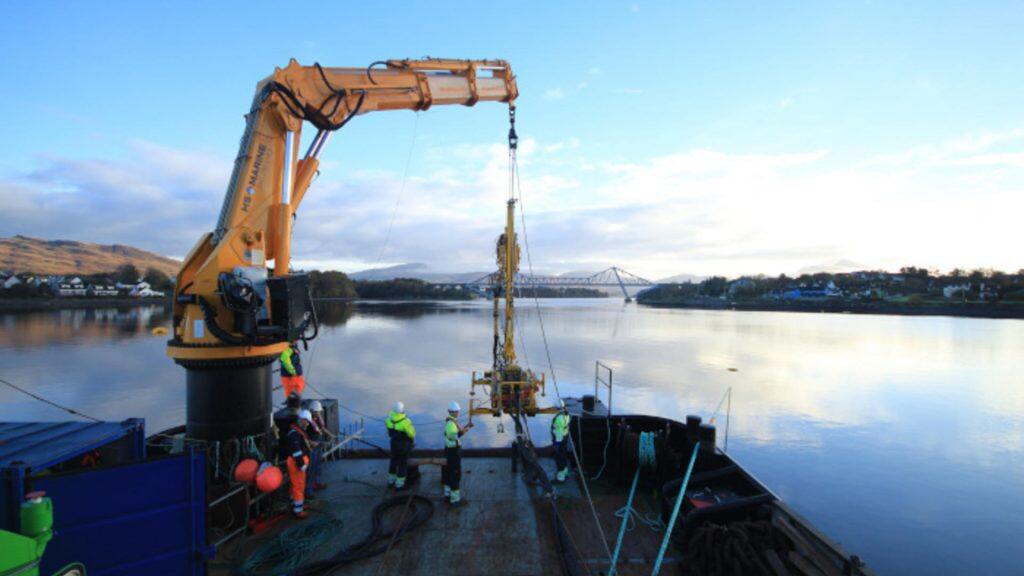The University of Dundee’s Civil Engineering department has been working as part of a consortium exploring how technology developed for the marine energy industry may help salmon farmers operate in remote locations and reduce their environmental impact.


Tidal energy firm Sustainable Marine Energy (SME), Inverness-based marine equipment supplier Gael Force Group and the Scottish Aquaculture Innovation Centre (SAIC) are also involved in the innovative project.
The project explores the development of a “groutless” anchoring approach which reduces cost, weight and environmental impact of mooring fish farm infrastructure by locking to the seabed without resin or grout.
With the testing phase complete, the results will allow for accurate prediction of the loads and capacity the new “rock anchors” can bear in further field trials. This will also allow Edinburgh and Canada-based SME to reduce the amount of material required to manufacture anchors, leading to a more cost-effective and environmentally friendly product.
“This has been a challenging and academically interesting project that has pushed us to explore the use of novel numerical simulation techniques to capture the complex behaviour associated with different rock types, and distil this into practical approaches for cost-effective anchor design,” said Dr Michael Brown, who is leading the project from the University of Dundee.
“Although rock anchors have been used for many years for classic civil engineering applications, they are often heavily over-designed and rely on grouting to bond to the rock mass.”
“This new anchor technology is designed to be much simpler and without the need for separate grouting operations. This has resulted in the need to develop new approaches to anchor design, which we think has pushed the envelope of current rock anchor understanding.”








































